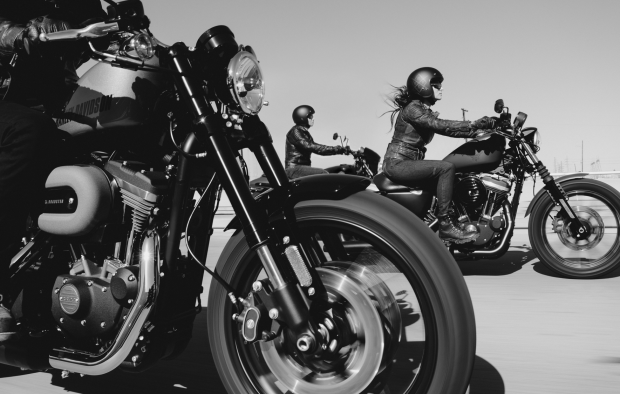
- Home
- News
- Road Traffic
- How to Stay Safe Riding a Motorbike in Winter

How to Stay Safe Riding a Motorbike in Winter
Getting out on your motorbike may be a favourite hobby, but it is important to stay safe and secure while riding.
As a rider falls into the category of vulnerable road user, it is imperative they take all essential steps to remain as safe as possible on the road.
With less protection, in comparison to a car, the risk of serious injury is greater; in Winter that risk rises even further as freezing temperatures and the possibility of snow makes for tougher riding conditions.
There are a number of factors riders should consider if they are heading out in wintry weather:
Consider not riding
Is the journey essential? If it is not essential, and the weather makes for tricky riding, then it is wise to avoid that journey altogether.
During winter there is a greater likelihood of icy, slippery conditions due to freezing temperatures and damp road conditions. With rain thrown into that mix, the result can be ice or, even worse, black ice which isn’t visible to the naked eye, particularly travelling at speed.
Dress well
Winter brings with it the need to dress appropriately. The need to wear suitable gloves, leathers and a bike helmet will all help with safe riding at speed. Thinking more about winter, the use of thermal layers may well prove very important to help prevent any cold winds whipping through biker leathers.
With shorter days making for darker mornings and evenings, it is also expected a motorbike rider would utilise high visibility gear to ensure they are as visible as possible to other road users.
Increase distance between yourself and other vehicles
As should be the case with all road users travelling at speed in wintry conditions, there should be increased distance between the bike and vehicles ahead. This takes into consideration increased stopping distances due to wetness on the road, or ice that may appear in particularly cold weather conditions.
Check your bike before setting off
Check your motorbike before setting off to ensure you avoid any accidents which could be caused by faulty mechanical elements. Tyres, brakes and indicators should be fully functioning and working as they should before departure. Check for any leaks which may be visible on the floor where the motorbike was stored before the journey.
If you have had an accident that wasn’t your fault and are considering making a motorcycle accident claim, contact the expert team at Winns and we can help with all aspects of your claim, from personal injury compensation to arrangement of medical treatment and replacement of your vehicle while yours is off the road.
Share this article
Request a Callback
Had an accident that wasn’t your fault? Leave your details and we’ll call you back.
Thank you
Thank you for your request, one of our team members will be in touch shortly.
Find Out MoreExisting Client?
Keep on top of your claim 24/7, 365 days a year with Touchpoint, accessible from any internet-enabled device.



